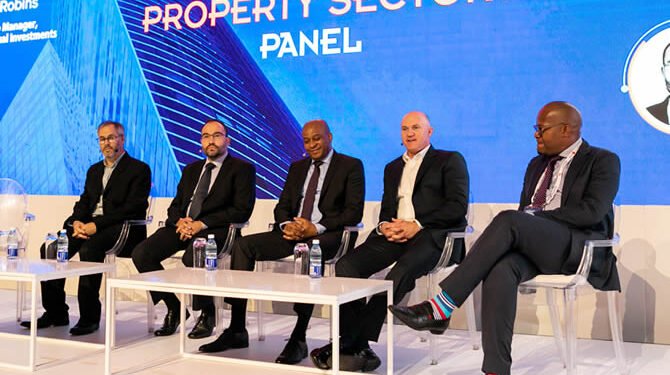
It is becoming harder to make the case to invest in SA’s listed property stocks while economic growth is weak and funds are raising little capital at home, the panel said at the Sapoa conference.
South African Real Estate Investment Trusts (REITs) have renewed their appetite for African property assets following a challenging economic environment negatively impacted the local listed property sector in 2018.
There is renewed appetite to expand into other African nations as investors look to gain first mover advantage in the continent — Africa Property News has learned.
South Africa’s commercial real estate sector leads the African continent, with a maturity and sophistication that compares favourably with any developed market.
But, with scores of opportunities for property investment and development arising in Africa, the next decade could see other African countries developing comparable commercial property sectors.
Investment in Africa took centre stage at the South African Property Owners’ Association (Sapoa)’s annual conference. The event, held in Cape Town last week, provided specialist insight to empower investment decisions.
A panel of experts moderated by Craig Smith, Head of Research & Property at Anchor Stockbrokers with Listed Property experts like Stephen Brookes CEO at Balwin Properties; Estienne de Klerk, CEO at Growthpoint Properties SA; Anton de Goede, Fund Manager at Coronation Fund Managers; Sandile Nomvete, CEO at Delta Property Fund; Bandile Zondo, Head of Financial Sector Equity Research, Standard Bank; and Evan Robins, Portfolio Manager, Old Mutual Investments, aired their views on how to lay ground for growth in turbulent times in the sector.

It is becoming harder to make the case to invest in SA’s listed property stocks while economic growth is weak and funds are raising little capital at home, the panel said at the conference.
2018 was the worst year for the SA listed-property sector, which is worth R590bn. It suffered a loss of 25.26%, which includes dividends and capital growth. Moreover, share prices of some companies slipped to well below the net asset value (NAV).
Landlords struggled to sign leases at higher rentals than before because tenants were under pressure because of the weak economy. The scandal around the Resilient group of companies — Resilient, Fortress, Nepi Rockcastle and Lighthouse Capital — also cost the sector dearly after a sell-off in these four stocks saw them lose more than R120bn of their value.
Africa View
The panelist agree that listed property groups should turn their attention to the rest of the continent. Africa is a fast-growing continent with a large middle class.
During the discussion, Standard Bank’s Zondo said that the sector was actually fairly priced, which made it challenging for property stocks to attract new investors.
“There are property stocks which are at attractive yields but I wouldn’t say the sector is over or underpriced. It’s fairly priced, in my team’s view, and I think much of the bad news has been priced in,” he said.
Zondo said property stocks with South African exposure needed the economy to grow at more than 2% to start getting momentum into their share prices and dividend growth, otherwise they would remain fairly bland investments.
De Klerk, SA CEO of Growthpoint Properties, the largest real estate group in the country, said the current economic environment was the hardest he had faced in his 25-year commercial property career.
He confirmed Growthpoint and Investec Asset Management announced their pan-African real estate investment joint venture backed by the World Bank’s International Finance Corporation investment arm. Its first deals have now been secured and are about to be revealed.
The venture, dubbed Growthpoint Investec African Properties (Giap), plans to invest around $500 million this year in shopping malls and office buildings in Nigeria, Kenya, Zambia and Ghana.
De Klerk cited Growthpoint’s funds management business (Giap) as a “counter-cyclical” move in Africa, adding that “it’s a better time to buy [properties] in the rest of Africa than to sell”.
Delta CEO Sandile Nomvete meanwhile said that the 2019 financial year had been the worst and toughest for the fund since it listed in 2012.
Nomvete said the company intended to “reduce its concentration risk within SA by responsibly exploring feasible and accretive opportunities in the Southern African Development Community”.
Evan Robins, a portfolio manager at Old Mutual Investment Group, said ultimately JSE-listed property was a function of the economy and even though about 45% of it was offshore, returns looked set to be modest for 2019 and 2020 overall.
“Companies will try to beat inflation with their total returns, but dividend growth is subdued with few funds having achieved more than 3% in dividend growth in the past year,” he said
In the view of Anton de Goede, fund manager at Coronation Fund Managers, lacklustre growth will likely continue in the SA REIT sector with vacancies likely to create pressure if there is no economic growth.
“In the past it was the expected dividends growth that always made listed property attractive. Without that dividend growth investors will not look at the sector,” said De Goede.









